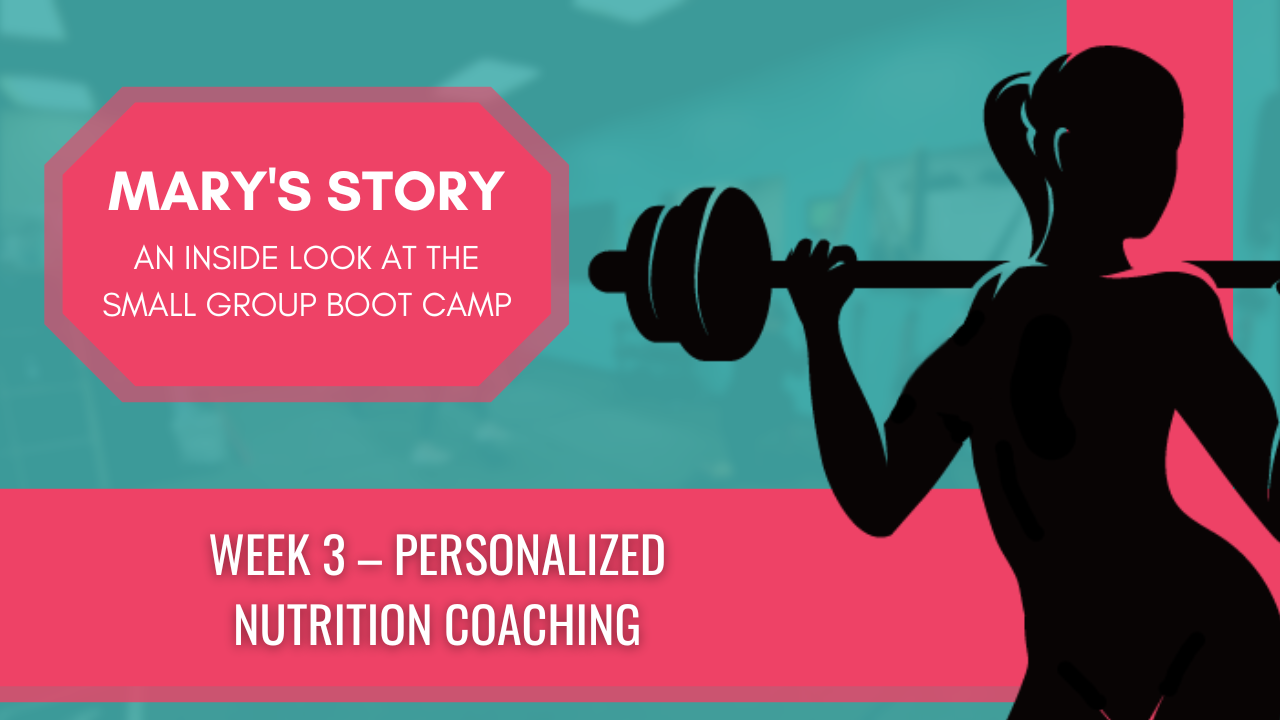Week 3 – Personalized Nutrition Coaching

Never buy a meal plan.
Mary’s nutrition coaching session last week will show you why.
Personalized Nutrition Coaching
At this first session, Mary handed me her half-completed packet hoping it was filled out enough. She had marked off the foods she liked eating and jotted down a few meals she enjoys. I told her it was a perfect starting point and that we could finish it together.
Based on Mary’s favorite foods and her sample meals, she had a decent understanding of what to eat. We reviewed the portions she needed for weight loss and how to nutritionally balance these servings to get the best results from her training.
As we reviewed the packet, I asked her, “What is the most difficult part about the nutrition for you?” Without hesitation she said “cravings” and explained that her cravings often happen during lunch time and late at night after dinner.
After exploring this further we discussed a few factors that were likely contributing to these cravings:
- A late lunch after skipping breakfast
- Undernourishment
- Being unprepared for the week
Skipping Breakfast
Mary had heard that intermittent fasting would help her lose weight, so she was skipping breakfast. This practice isn’t necessarily bad or good; however, the demands place on her at work often pushed her lunch break past 12pm. By that time, she was famished and would pick up food at any eatery that caught her eye which was usually not the best choice. But even when she did prepare a lunch from home, the meal didn’t satisfy her hunger and she would still find herself mindlessly snacking at work.
In Mary’s case, skipping breakfast was leaving her undernourished and susceptible to “hormonal take-over.” This is when all the major hormones like ghrelin, leptin, insulin, and CCK are working together, telling you to eat something…anything. When you reach this point, your hormones are screaming at you because you didn’t take their subtle suggestions to eat earlier, resulting in poorer nutritional decisions and regular overeating.
Now let me clarify…
There is nothing wrong with Mary’s hormones. Most anyone who wakes up at 6:30am and doesn’t eat a meal until 12:30pm will experience a strong hormonal response that drives their eating behaviors.
To prevent this outcome and keep her hunger under control, Mary decided to change her meal timing by having breakfast and pay attention to her body’s subtle hunger cues to address them earlier with a high protein snack or meal.
Once she has that down, she will be ready for her next session!
What about the late-night snacking?
It is best to handle one main concern at a time. Since nutrition is interconnected, fixing one problem often addresses others down the line.
Let me know your thoughts on how we handled Mary’s nutrition:
Do you think replacing her current diet with a rigid 6-week meal plan would have been a better solution for Mary? Or would trying to follow the rigid plan impede her ability to focus on addressing the fundamental problems she’s struggling with?
